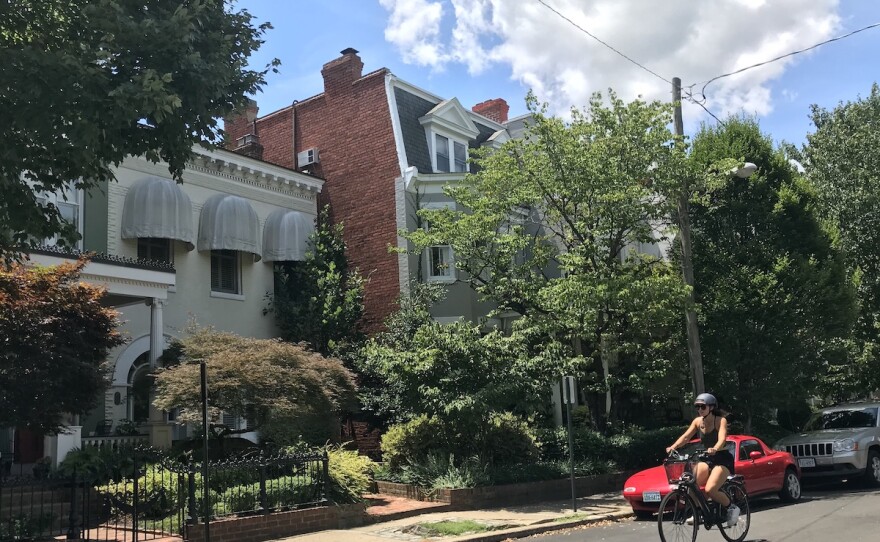By Ben Paviour and Katharine DeRosa
The median home price in Virginia surged 40% during the past five years to hit an all-time high of $401,000 in May, according to the Virginia Realtors association.
That, in addition to rising interest rates, means a homebuyer paying a typical mortgage will end up forking over an extra $700 each month for a median Virginia home compared to a year ago, the association said.
The data presented Wednesday to lawmakers on the Virginia Housing Commission drove home the commonwealth’s deepening affordability crisis. The problem is especially acute in Northern Virginia, home to some of the most expensive housing markets on the East Coast, but impacts the entire state.
Pandemic-era sales have been especially strong in suburbs and what one association economist called “Zoom towns” — places like Nelson County or the Northern Neck that have access to both broadband and nature, but offer reasonable once-a-week commutes to bigger cities. At the same time, Virginia continues to see an out-migration to states like North Carolina that have cheaper homes and jobs with comparable compensation.
Rising interest rates and steep prices have helped cool home sales recently. But experts told lawmakers they expect prices to stabilize, not drop significantly because there is a shortage of housing stock. And as homebuyers get priced out, they’re likely to rent instead, fueling a rise in those costs and an uptick in evictions as state and federal protections forged at the beginning of the pandemic run out.
“The reality is, it's still going to be a very competitive housing market all around Virginia … for quite some time,” Virginia Realtors Chief Economist Ryan Price told members of the housing commission Wednesday.
Price said half of homes are currently being sold in eight days or less after being put on the market. “About a quarter are on the market for three days or less,” he said. “A lot of those are one day. A lot of those are one hour.”
The problem has economic reverberations: CNBC gave Virginia a grade of “D+” for cost of living as part of its rankings for best states to do business, which was released on Wednesday. The commonwealth was No. 3 in the ranking, down from the top spot last year.
Though the data has not yet been collected for 2022, Price said he believes the median income in Virginia is no longer high enough to support the median monthly mortgage payment on a 30-year fixed rate loan. A worker would have to earn about $96,000 to afford the median $401,000 home, according to “back of the envelope” math Price provided the commission.
There was some good news, though: Inventory is picking up across the state, particularly around Charlottesville, Loudoun County and the New River Valley. But the current rate of new construction is not enough to keep up with heavy demand for rentals and housing. Virginia faces a shortage of about 200,000 affordable housing units, according to a study published last year by the legislature’s research wing, the Joint Legislative Audit & Review Commission.
As a result of higher housing prices, Virginians from Arlington, Fairfax and Alexandria are fleeing to areas that offer similar wages, but lower costs of living. One of the more popular out-of-state destinations is Wake County, North Carolina, which encompasses the city of Raleigh, according to Internal Revenue Service data cited by Hamilton Lombard, a researcher at the University of Virginia’s Weldon Cooper Center.
“Wake County has a typical house price about half that of Fairfax. But if you’re starting a job in Wake County, you’re only taking about a third of the pay cut,” Lombard said. “So, there’s a strong financial incentive.”
Business owners are following workers to their new homes, Lombard said. For example, someone who owns a deli in Arlington, could see people moving to areas like Nellysford and set up shop there.
“There’s a lot more options for them … than there were 10 years ago,” Lombard said.
Industry representatives cited a variety of obstacles to meeting the growing demand for more housing, including laborious and unpredictable permitting, strict zoning laws, rising costs for supplies and labor, as well as local opposition.
The housing commission is expected to take up the topics at future meetings.




